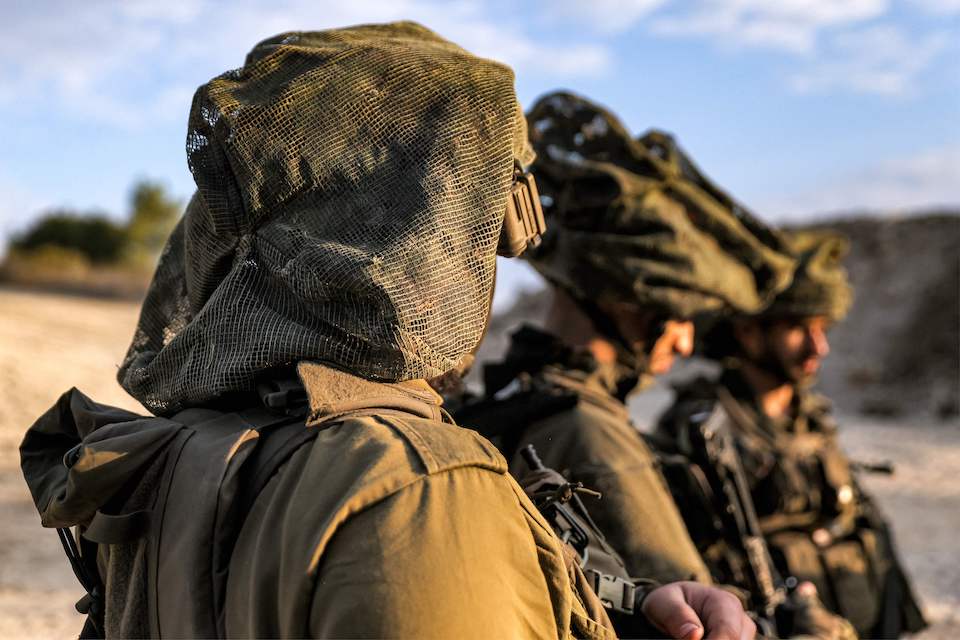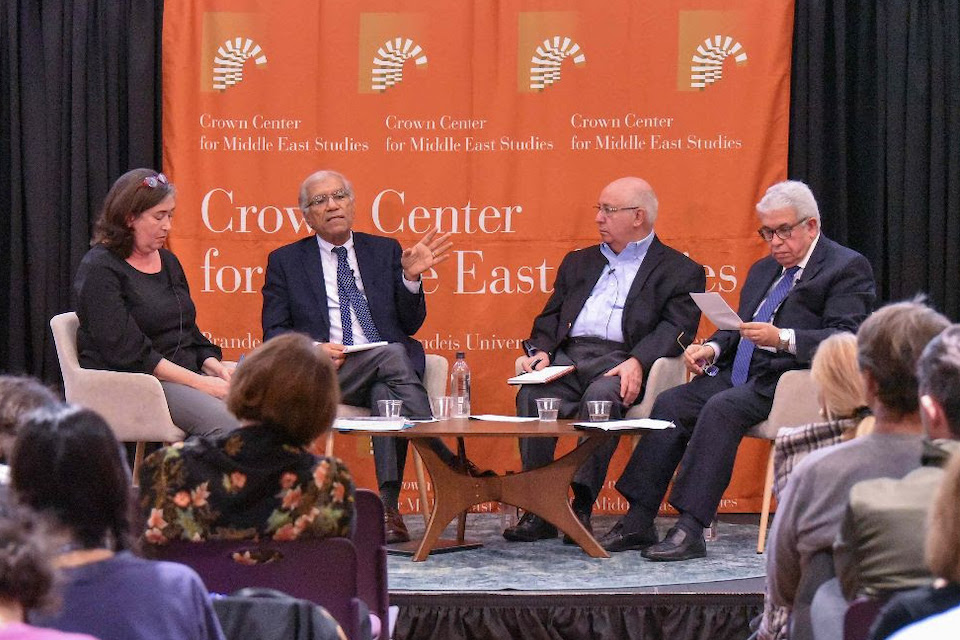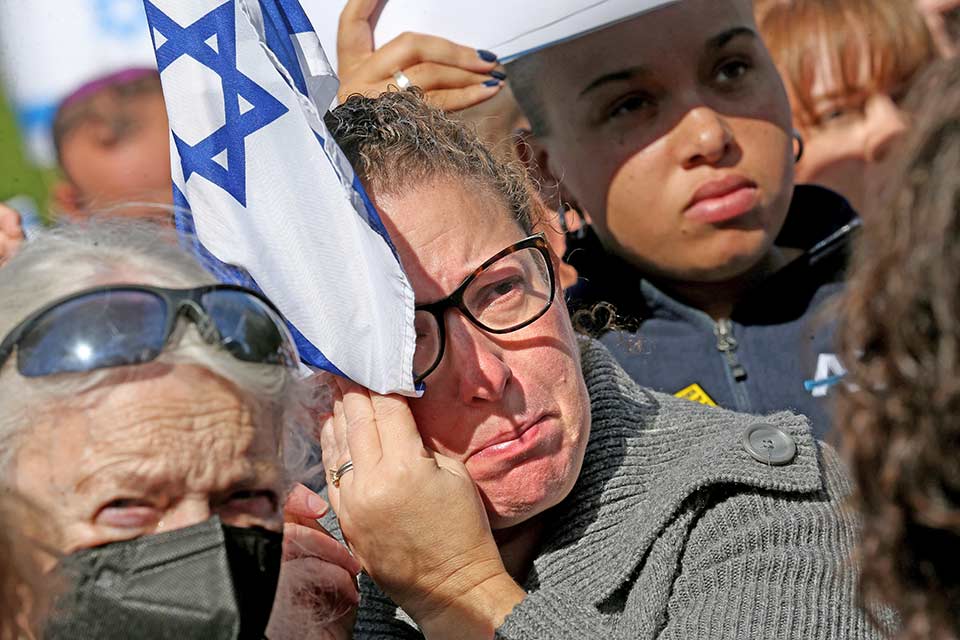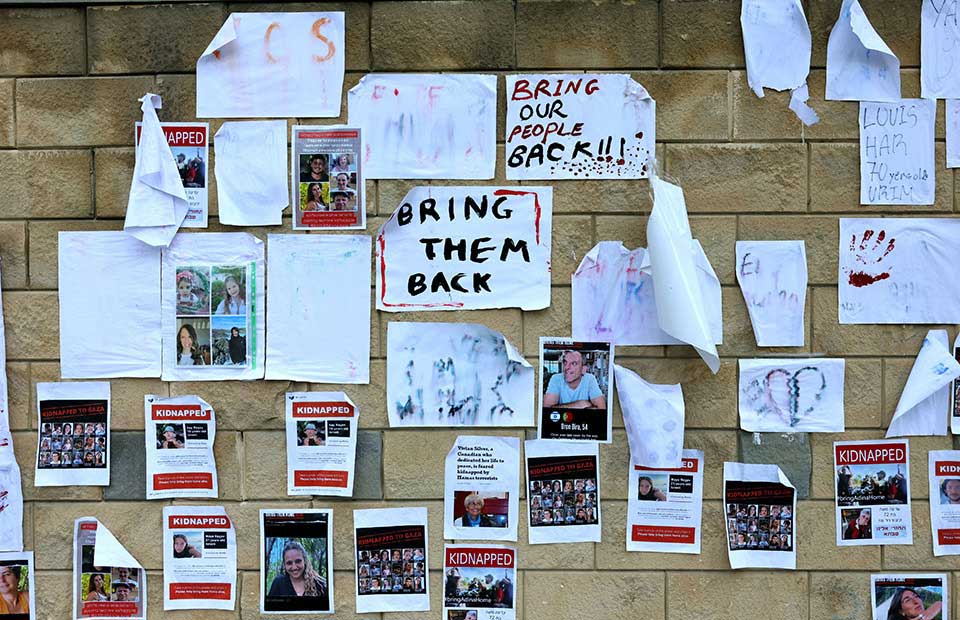Israel-Hamas War: What is the risk of a wider conflict?

Photo Credit: Getty Images
By Jarret Bencks
November 3, 2023

Gary Samore
Each passing week raises new questions about the Israel-Hamas War. What is the risk of a wider regional conflict? Could the war escalate to a point where the United States and Iran are drawn in? What role might Hezbollah, the Iranian-backed terrorist group, play in a widening conflict?
Gary Samore, the Crown Family Director of the Crown Center for Middle East Studies and professor of the practice of politics, was a senior official on the National Security Council in the Clinton and Obama administrations. He has more than two decades of experience in nuclear arms control and nonproliferation, especially in the Middle East and Asia. Here, he answers questions on the Israel-Hamas conflict and the risk of a wider regional war.
What is the risk of a wider regional conflict?
The greatest danger is that an Israeli invasion of Gaza to eliminate Hamas’ military capabilities and political rule over Gaza will lead to a full-scale war between Israel and Hezbollah, which could potentially draw the United States and Iran into the conflict. Hezbollah — the political and paramilitary group based in Lebanon and designated a terrorist organization by the U.S. and Israeli governments — has a formidable missile arsenal that can threaten Tel Aviv and other Israeli cities.
Until now, Hezbollah has conducted limited attacks along the border between Israel and Lebanon. These attacks are designed to demonstrate support for Hamas and tie down Israel forces in the North, but Hezbollah has refrained from any attacks that are likely to provoke a full Israeli retaliation.
Since the Israeli ground invasion of Gaza, it has become clearer that Hezbollah and Iran wish to avoid a major conflict with Israel. From Hezbollah’s standpoint, a war with Israel (as in the 2006 Lebanon War) would inflict devastating damage and weaken Hezbollah’s political position in Lebanon.
For Iran, the primary interest is to preserve Hezbollah as a strategic asset to deter an Israeli attack on Iran itself, rather than expend the value of Hezbollah in defense of Hamas. Under these circumstances, the risk of a wider war is from miscalculation and escalation rather than a deliberate decision to initiate conflict.
For example, if Hezbollah launches a few missiles against Israeli cities as a token response to the ground invasion, Israel may respond with a wider preemptive attack against Hezbollah missile sites to prevent further damage. This could lead to Hezbollah retaliation and full-scale war between Israel and Hezbollah.
Would this raise the likelihood of U.S. intervention?
In this scenario, U.S. intervention becomes more likely. President Biden has warned other parties not to expand the Israel-Hamas conflict, which is reinforced by the deployment of additional military forces to the region, including two carrier task forces in the eastern Mediterranean and additional air forces in the Persian Gulf. In the event of a full-scale war between Israel and Hezbollah, President Biden could order U.S. air strikes against Hezbollah military capabilities in Lebanon.
How might Iran respond?
On one hand, Iran is unlikely to attack Israel directly or U.S. forces in the region because it wants to avoid U.S. and Israeli retaliation. On the other hand, Iran is likely to order its militias in Syria to attack Israel and increase attacks by its supported militias against U.S. personnel and facilities in Syria and Iraq, which has already begun since the Oct. 7 Hamas terrorist attacks against Israel. Israel will continue to attack Iranian targets in Syria, as it has for many years, and the Biden administration will retaliate against Iran-supported militias in Syria and Iraq for any lethal attacks against U.S. personnel.


